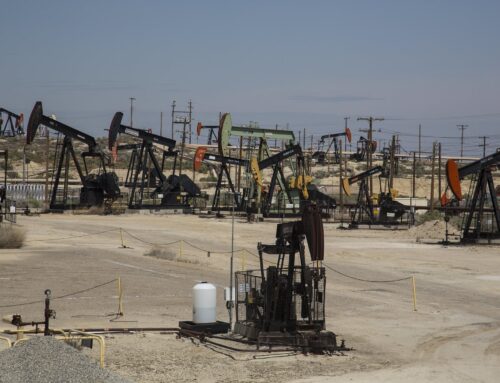Tonight President Trump and former Vice President Biden will hold dueling town halls. There will be less interrupting, simply because both candidates won’t be on the same stage. That doesn’t mean full sentences are guaranteed, or for that matter, actual answers to the questions asked, or within anything like a time limit. We’re optimists. We’re not fools.
We are, however, determined nonpartisan budget watchdogs who bring inconvenient questions to the mic. Because seven months into the pandemic – which has not, in fact, simply faded away – we have trillions of dollars sloshing through the system without enough Congressional oversight, millions out of work, and over 215,000 dead. Whoever is sworn in on January 21 will have to lead us through this and to the other side.
So here are questions for the two marquee candidates.
From our Budget and Oversight desk:
Former Vice President Biden: As a former Senator do you believe the Article I responsibilities of Congress, particularly as it relates to the appropriation of federal funds, should be wholly separate from the Article II powers of the President? President Trump’s administration has taken several actions to violate the separation of powers by, among other things, using an emergency declaration to transfer funds from the Pentagon to build barriers on the southern border. A recent U.S. Court of Appeals ruling upended the president’s actions in that matter. Will you pledge to a strict interpretation of the separation of powers across the three branches of the federal government?
From our National Security desk:
President Trump: Secretary of Defense Mark Esper recently shared some details of the Pentagon’s new “Battle Force 2045.” It calls for hundreds of new ships, both submarines and surface ships, in the next 25 years. He didn’t provide cost estimates but, even if some of these new vessels are un-manned, you are talking about many tens of billions of dollars, probably hundreds of billions. Mr. President, what other federal funding will you cut to pay for this?
From our Energy and Natural Resources desk:
President Trump: By all accounts, the Department of Interior is in a mad rush to lease federal lands for oil and gas development at rock bottom rates, even continuing with lease sales during the pandemic. In high producing areas like New Mexico, leases that normally go for $6,000 per acre went for 90 percent less and in other states dozens of leases fetched the minimum bid of only $2 an acre. And this summer the Department of Interior awarded more than 500 producing leases at royalty rates of a mere .5 percent, costing taxpayers millions. While lucrative for the oil and gas industry, this behavior amounts to the near giveaway of the valuable natural resources we all own, hurting both state and federal coffers. We’re in an oil glut, why would we need to incentivize more production and decrease already reduced federal revenues with low royalty rates and uncompetitive leasing?
Former Vice President Biden: Many of the Department of Interior issues with leasing and royalty collection are longstanding concerns that we raised during your time as Vice President. Royalty rates haven’t changed since 1920, the minimum bid and rental rates haven’t changed since the Reagan Administration. Unfortunately, little was done to reform leasing practices or increase royalties, both of which can be done without Congressional action. What would you do to ensure taxpayers receive a fair return for natural resources extracted or developed on federal land, if you return to the White House?
From our Agriculture desk:
Former Vice President Biden: Let’s go back to the issue of the separation of powers. After both China and our trading partners imposed steep tariffs on agricultural exports in response to the Trump Administration’s unilateral trade war, USDA Secretary Perdue tapped the Depression-era Commodity Credit Corporation to unleash nearly $25 billion in federal aid in place of income from trade. All this was done without consulting Congress. This has contributed to the USDA and independent economists projecting that direct government payments in 2020 will be $37.2 billion, constituting 36.2 percent of net farm income, the highest level since 2001. What would you do to foster innovation and opportunity in agriculture and ensure that farmers and ranchers do not become dependent on government subsidies?
President Trump: In each of your annual budget requests you have proposed a number of common sense and fiscally responsible reforms to farm subsidy programs. If reelected, what steps will you take to finally make these much-needed reforms a reality, rather than rhetoric? Specifically what will you do to ensure that the safety net payments that do go out go to actual farmers and ranchers who provide labor on the farm, instead of people farming the programs?
From our Infrastructure and Disaster Relief desk:
President Trump: It’s always infrastructure week somewhere; has been since the first day of your administration. But what do you propose to do about appropriately budgeting for existing infrastructure that may not bring joy but cannot be junked? In fact in some cases should be fixed first before we shovel money at other projects that’ll just add to the repair backlog.
Former Vice President Biden: What would you propose to do about budgeting better for disasters? Climate change is no longer a dystopic future that awaits us. It’s here, with a historic fire season that coined a new term – “gigafire.” The flip side of that was a hurricane season that ran out of A-to-Z names by mid-season and moved to the Greek alphabet. And especially since all evidence shows that for every dollar spent, mitigation saves six dollars or more on disaster response.
We have all the questions. And we think they should be answered.










